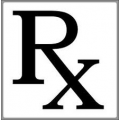The pharmaceutical industry is a complex, multi-trillion dollar a year industry consisting of chemists and other scientists, engineers, doctors, researchers, regulators, environmentalists, manufacturers, advertising executives, public relations specialists, educators, sales executives, and more. This means, it takes an army to develop effective medications for the masses, but the average person does not see what goes into creating a single pill. Fortunately, by the time the millions of tiny pills, sprays, injections, and other medications reach the consumer, the most difficult tasks are complete. However, this does not mean all tasks are complete.
While the pharmacy’s objective is not to manufacture and market medications, the pharmacy is the last line of defense, so it plays a very vital role in ensuring patient safety. The pharmacy and its staff are charged with the task of making sure the exact prescribed medication makes it into the hands of the right patient. To do this, the head of the outfit—the pharmacist, must have three weapons in his arsenal: (1) a PharmD (Doctor of Pharmacy) (2) experience, and (3) a talented team of pharmacy technicians.







